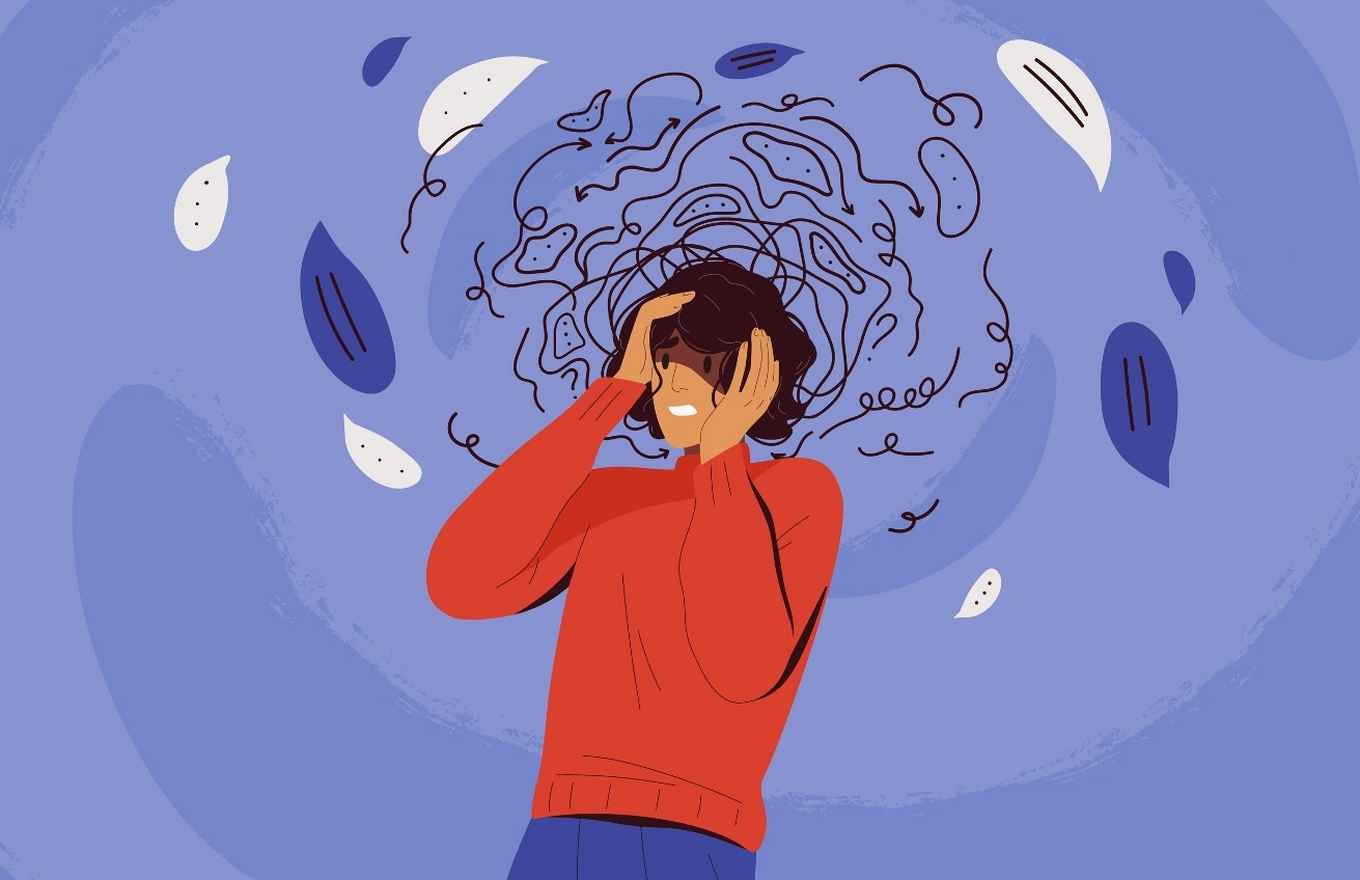When trauma becomes too overwhelming
11 May 2023

Despite the contemporary connotations the term carries, having a psychological trauma does not necessarily mean that you suffer from it. ‘We regularly experience trauma in our lives,’ says Arntz. ‘Because trauma is essentially a strong emotional reaction to an event – like a particularly tough rejection or the passing of a loved one. However, we’re usually able to deal with trauma ourselves, preventing it from becoming a long-lasting burden.’
A psychological trauma only becomes a problem when people keep reliving the event that caused the trauma in the first place, experiencing significant adverse effects as a result. ‘Problematic processing of trauma is the only disorder for which an explicit cause is reported,’ explains Arntz. This is according to the DSM, the ‘bible’ for diagnosing mental disorders. This cause is often a specific physical threat, such as violence or sexual harassment. However, Arntz stresses that it could also be an emotional experience. ‘The cause could equally be a moment of humiliation, bullying or the sudden loss of a job – factors that are unfortunately not yet taken into account in the DSM.’
Hard to predict who will suffer from trauma
According to Arntz, people differ greatly in how likely they are to develop a disorder following a traumatic event. In fact, their sensitivity to trauma can vary from moment to moment. ‘Why is it, for instance, that we’re perfectly able to handle a nasty remark at one time, but a similar remark really hurts at another? And how can we explain that a train driver is still mentally able to get back to work after having seen three suicides, but can’t after the fourth?’
That is why, in mental health care, the general rule is first to give people who exhibit symptoms of psychological trauma some time to recover on their own before resorting to professional help.
Normalisation and balance
The key to dealing with trauma, Arntz believes, is in normalisation and finding the balance between avoiding and confronting. ‘It’s important for people to hear that their response to a situation is perfectly normal – whether they freeze when they witness an accident or are unable to get a particular image out of their minds. Next, they need to be given the space to talk about what’s happened without being forced to do so, as well as distraction. It’s not good for them to be thinking about it constantly. So it’s all about finding the balance between avoiding and confronting.’
Collective trauma resulting from a disaster
So we all experience individual traumas throughout our lives. But there are also situations in which many people experience trauma collectively. Such as during large-scale disasters like the earthquakes in Turkey and Syria. What characterises trauma on such a massive scale? ‘In truth, the course of collective suffering is more "favourable" with regard to the likelihood of trauma,’ says Arntz. ‘People then benefit enormously from social cohesion, support for each other and the ability to share.’
However, Arntz emphasises that a certain degree of caution is required when dealing with psychological trauma immediately after a major disaster. ‘People’s primary needs are safety, shelter and food, and after that they mostly want to resume their daily lives. Furthermore, given the right balance between avoiding and confronting, many people are able to cope and recover on their own.’ Providing trauma support too early can even make things worse, Arntz claims. ‘Research carried out after disasters has shown that if people are forced to confront the situation too early, including the suffering of others, the help they receive can backfire and disrupt that delicate balance between avoidance and confrontation.’
Treating trauma
And how do you treat trauma? ‘Fortunately, effective trauma treatments have been developed to benefit people who get stuck and suffer heavily from their trauma,’ says Arntz. In fact, out of all treatments for psychological disorders, the positive effects of trauma treatment are the most pronounced.
One example that Arntz gives is a trauma treatment that is actually the subject of research at the University of Amsterdam: Imagery Rescripting. ‘This treatment sees patients once again visualise the traumatic event in their imagination. The therapist then steps into the visualisation at the peak of the trauma, the bit of the memory that causes the most distress, and intervenes. Eventually, the patient learns how they themselves can intervene and, in doing so, regain a sense of control.’
To improve treatment even further, Arntz believes that we need to know exactly which aspects of a memory should be targeted. ‘We need to know how the brain represents a distressing event upon its recollection, and which emotions this brings up. There’s increasing scientific evidence that addressing core convictions in a memory, such as “It’s my fault” or “I’m worthless”, can help reduce symptoms and aid in people’s recovery.’